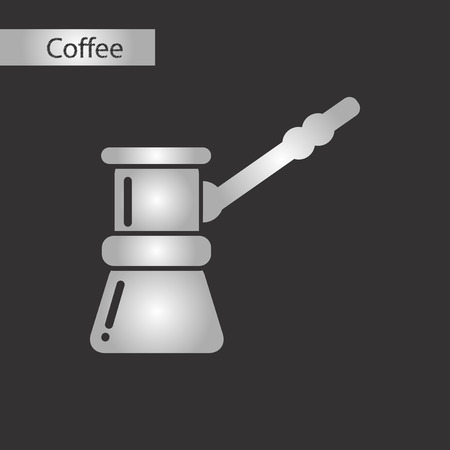Introduction to Pre-owned Coffee Equipment
Coffee culture in the United Kingdom has flourished over the past decade, evolving far beyond the traditional cup of tea and reaching new heights with artisan cafés, specialty roasters, and a discerning community of home baristas. As interest in high-quality coffee continues to grow across cities and rural towns alike, so too does demand for coffee equipment—ranging from commercial espresso machines found in bustling London cafés to compact grinders and brewers for home enthusiasts. In tandem with this surge, there is a noticeable shift towards purchasing pre-owned coffee machines and accessories. This trend is shaped not only by economic considerations but also by a heightened awareness of sustainability and resourcefulness. The secondary market for coffee equipment is expanding rapidly, as both individuals and businesses look to reduce waste, save money, and support circular economy principles. By examining the environmental implications of buying second-hand coffee gear within the UK context, we can better understand how these choices contribute to a more sustainable future for Britain’s vibrant coffee scene.
Environmental Benefits of Reusing Appliances
Opting for pre-owned coffee equipment brings significant environmental advantages, particularly within the UK context where sustainability and resource conservation are increasingly prioritised. By choosing to reuse appliances instead of purchasing new ones, consumers contribute directly to the reduction of raw material extraction and energy usage associated with manufacturing processes. This decision not only lessens the demand on finite resources such as metals, plastics, and electronic components, but also helps mitigate the pollution generated during production.
Resource Conservation
Every piece of coffee equipment that is reused instead of replaced means fewer raw materials are required for manufacturing. The conservation of resources extends beyond basic materials; it also includes water and energy savings throughout the supply chain. When considered at scale, these savings can be substantial, especially in a country like the UK, where product life extension aligns with broader circular economy goals.
Reduced Manufacturing Impact
The environmental footprint of producing new coffee machines involves mining, refining, component assembly, and transportation—all activities that contribute to greenhouse gas emissions. By embracing pre-owned equipment, individuals and businesses effectively reduce their indirect carbon footprint. The following table summarises key environmental impacts mitigated by reusing coffee appliances:
| Environmental Factor | New Equipment | Pre-owned Equipment |
|---|---|---|
| Raw Material Demand | High | Low |
| Manufacturing Emissions | Significant | Minimal (reuse) |
| Energy Consumption | Substantial | Reduced |
| Packaging Waste | Considerable | Often Negligible |
| Total Carbon Footprint | Elevated | Diminished |
Waste Mitigation and Landfill Reduction
Purchasing second-hand coffee equipment has a direct impact on waste management strategies in the UK. Extending product lifecycles means fewer items end up in landfill sites or require complex recycling processes. This approach supports national efforts to divert electrical waste from landfills and fosters a culture of repair and reuse. For both domestic users and hospitality businesses, investing in pre-owned equipment can be seen as an active step towards environmental stewardship, aligning daily choices with the UKs sustainability objectives.

3. Carbon Footprint Reduction in the Supply Chain
When considering the environmental impact of buying pre-owned coffee equipment in the United Kingdom, one of the most significant benefits is the reduction of carbon emissions throughout the supply chain. By opting for used machines and tools, both individuals and businesses play a direct role in cutting down on the environmental costs associated with manufacturing new products. The production of coffee equipment typically involves energy-intensive processes, extraction of raw materials, and considerable waste generation, all of which contribute to greenhouse gas emissions. Choosing pre-owned equipment effectively eliminates the need for these initial stages, thereby reducing the overall carbon footprint.
Furthermore, packaging is another area where emissions are notably decreased. New coffee equipment often arrives heavily packaged to protect it during long-distance shipping, frequently using plastic and other non-biodegradable materials. In contrast, pre-owned items are more likely to be exchanged locally or regionally within the UK, sometimes with minimal or reused packaging. This not only prevents excess waste but also limits the resources required for producing new packing materials.
The logistics of transporting new coffee equipment from manufacturers—often located overseas—also add to its environmental impact. Shipping across continents by air or sea generates significant emissions, while domestic transport within the UK for pre-owned goods is generally less intensive. Many second-hand transactions happen within local communities or through regional suppliers, meaning shorter travel distances and reduced reliance on high-emission transportation methods. Ultimately, choosing pre-owned coffee equipment helps to create a more sustainable and circular economy in the UK by addressing key emission sources within the supply chain.
4. Waste Reduction and Circular Economy
In the context of Britain’s growing environmental awareness, the adoption of pre-owned coffee equipment plays a pivotal role in fostering a culture of waste reduction and circular economy. The second-hand market is not just about affordability; it actively encourages individuals and businesses to embrace repair, reuse, and recycling, thereby minimising the pressure on UK landfills.
Repair Culture: Extending Lifespan
The British tradition of “make do and mend” finds new relevance as more people opt for pre-owned coffee machines and grinders. These items often come with robust engineering that supports easy maintenance. Specialist repair shops and online communities have emerged across the UK, offering advice, spare parts, and services that keep older machines running efficiently. This focus on repairability helps extend product lifespans, reducing the need for constant replacements.
Recycling Components: Closing the Loop
When pre-owned coffee equipment eventually reaches the end of its usable life, many components can be recycled. Metals, plastics, and electronic parts are increasingly being separated and processed through local recycling schemes. This not only diverts waste from landfill but also reduces demand for virgin materials—a key principle in the circular economy.
Impact Comparison Table
| Aspect | New Equipment | Pre-owned Equipment |
|---|---|---|
| Landfill Contribution | High (shorter lifecycle) | Low (extended usage) |
| Support for Repair Sector | Limited (warranty restrictions) | Strong (repair-friendly) |
| Recycling Opportunities | Often delayed or missed | Maximised at end-of-life |
| Circular Economy Participation | Mainly linear consumption | Active contribution |
The Broader Impact Across Britain
The cumulative effect of these practices is significant. By choosing pre-owned coffee equipment, businesses and households across Britain are helping to reduce the volume of waste sent to landfill sites, supporting local repair trades, and promoting a shift towards more sustainable consumption patterns. In this way, the second-hand market becomes an essential pillar in Britains journey towards a greener future.
5. Challenges and Considerations for UK Consumers
While purchasing pre-owned coffee equipment offers clear environmental benefits, UK consumers should be mindful of several challenges unique to the British market. Identifying these potential pitfalls is essential to ensure that the decision to buy second-hand remains both sustainable and practical.
Maintenance and Upkeep
One of the primary considerations is the ongoing maintenance required for used coffee machines. Older models may demand more frequent servicing, which can offset some of the environmental gains if spare parts are difficult to source or if repairs necessitate additional transportation. It’s advisable for buyers to check the availability of local repair services and authentic replacement parts in their area before making a purchase.
Energy Efficiency of Older Models
Another key factor is energy efficiency. Many pre-owned units, especially those manufactured several years ago, may not meet modern energy standards set in the UK. This could result in higher electricity usage and increased running costs over time. Consumers should compare energy ratings where possible and consider whether retrofitting with newer components is feasible or cost-effective.
Sourcing Reliable Equipment
The British second-hand market can be something of a mixed bag, ranging from reputable dealers who refurbish and guarantee their machines to private sellers on online marketplaces. Establishing the provenance and condition of used coffee equipment is crucial—requesting service histories, inspecting machines in person when possible, and relying on established retailers or trusted local shops can mitigate risks associated with unreliable sources.
Regional Variations Across the UK
Access to quality used coffee equipment varies across different parts of the country. While larger cities like London, Manchester, or Edinburgh may offer more choices and better access to professional refurbishment services, rural areas might present limited options, potentially increasing transportation emissions or making it harder to find suitable machines.
Balancing Cost and Sustainability
Finally, while buying pre-owned is often driven by budget considerations as much as environmental ones, consumers must weigh short-term savings against long-term efficiency and reliability. By carefully considering these factors within the context of the UK market, buyers can make informed decisions that support both their personal values and broader sustainability goals.
6. Practical Tips for Eco-friendly Coffee Enthusiasts
Guidance for Sustainable Coffee Equipment Purchases
If you’re keen on reducing your environmental footprint while enjoying quality coffee at home, buying pre-owned equipment is a commendable choice. Here are some practical steps to make your purchase as sustainable as possible.
Choose Reputable UK Sources
Opt for established platforms with a strong presence in the UK, such as Gumtree, eBay UK, and Facebook Marketplace. Specialist retailers like Coffee Hit’s pre-loved section or the Used Coffee Gear website also offer quality assurance and often include refurbishment guarantees. Local charity shops and community buy-and-sell groups can be treasure troves for gently used machines and grinders, all while supporting circular economy principles.
Evaluate Product Lifespan and Condition
When inspecting second-hand equipment, prioritise models known for durability and ease of repair—brands like Gaggia, Sage, and Rancilio have strong reputations among UK enthusiasts. Ask sellers about service history and request photos or videos of the machine in operation. Always check for limescale build-up, worn seals, or other signs of wear that may reduce lifespan or efficiency.
Extend Equipment Life Through Maintenance
Once you’ve made a purchase, regular maintenance is essential. Descale machines using eco-friendly solutions suitable for hard UK water; replace gaskets and group head seals periodically; and keep grinders clean to ensure consistent performance. Many UK-based suppliers offer spare parts and instructional resources to help you carry out repairs at home, further minimising waste.
Dispose Responsibly When Upgrading
If you eventually need to part with your coffee kit, resist the urge to bin it. Donate working appliances to local charities or community groups; alternatively, use council-run recycling schemes or specialist electronic waste services to ensure responsible disposal.
Supporting a Greener Coffee Culture
By making informed choices when buying pre-owned coffee equipment in the United Kingdom—and caring for those purchases—you’re not only saving money but also actively contributing to a more sustainable coffee culture across Britain.


